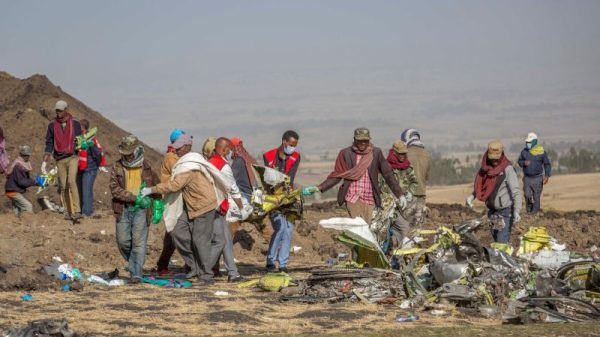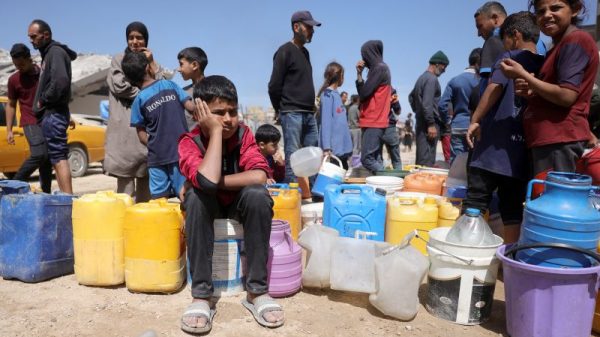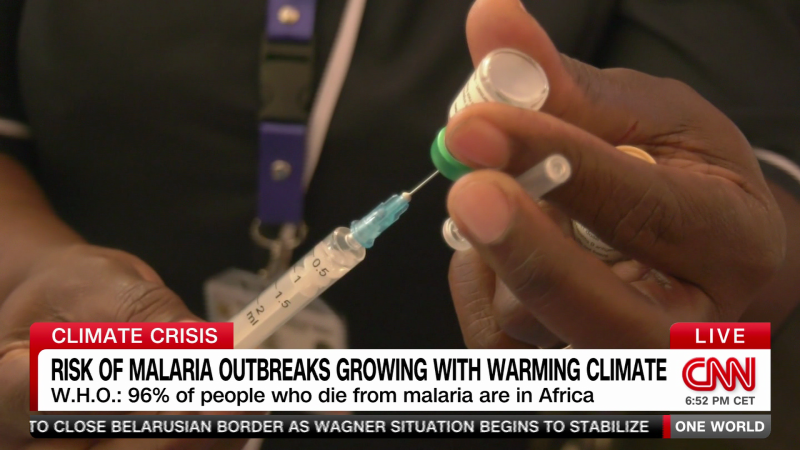Mary Achieng’s family is in the malaria ward at Nightingale Hospital in western Kenya almost every month. On this visit in late August, she’s being treated along with her two sons, aged 4 and 12. All three are recovering from a disease that has long devastated their region.
Achieng lives in Kisumu, Kenya, a hot and humid lakeside region where conditions are ideal for malaria-transmitting mosquitoes. She’s one of 14 million Kenyans who live in areas where malaria is endemic and who struggle with the burden of a disease which kills an estimated 10,000 people in the country each year.
Now there are fears that the malaria is spreading to new communities in the country – and just at a time when the development of the world’s first mosquito vaccine is raising hopes the deadly disease could one day be eradicated.
The reason: climate change.
A breeding ground for mosquitoes
Mosquitoes thrive in warm and humid conditions and the human-caused climate crisis is fueling more frequent and severe heat waves as well as storms that leave behind pools of water where the insects love to breed.
In Kenya, as elsewhere in Africa, it means malaria-transmitting mosquitoes are threatening communities where outbreaks have previously been rare.
Scientists from Kenya Medical Research Institute (KEMRI) are investigating reports of malaria cases in people who had not recently traveled out of areas previously considered “malaria-free.”
This includes places like the Kikuyu highlands, on the outskirts of the capital Nairobi, where scientists found malaria-transmitting mosquitoes for the first time. A significant increase in temperatures in the area – about 1.3 degrees Celsius over the last 60 years- could be a driving factor, they said in a recent report.
Steve Ngugi, a 45-year-old Kikuyu resident, was shocked to learn he had tested positive for malaria in February despite not having traveled to a malaria zone. It was the first time in his life that he contracted the disease. With little or no immunity, malaria left him extremely sick, weak, and fearing for his life for three months.
It is a problem that affects many countries in Africa, which shoulders 95% of malaria infections, killing more than 600,000 people annually – most of them children.
A recent report found that malaria-transmitting mosquitoes have reached new heights in sub-Saharan Africa, on average climbing 21 feet in elevation every year over the last 120 years. It’s a pace that follows climate change, according to the report authors.
“Where cooler places now are becoming warmer, we are seeing increased malaria rate in those areas because of mosquito multiplication,” said Richard Munang, climate change program coordinator for the UN’s environmental agency.
Experts warn other continents are at risk too, as the climate crisis accelerates.
“What is happening in Africa will gradually see itself elsewhere, because with a warming climate, with the changing temperatures, malaria mosquitoes are migrating to other areas that are conducive for them,” said Munang. As the insects move to different territories, people will be displaced, he said.
There is good news when it comes to combating malaria. Scientists and health experts have made strides in tackling the disease over the last two decades using a wide range of preventative measures.
In Kenya, increased distribution of insecticide-treated bednets, preventative doses of antimalarial drugs, and nation-wide awareness campaigns have contributed to a dramatic decrease in malaria.
Now with the introduction of the world’s first malaria vaccine, hailed as a breakthrough, there is talk of one day reaching eradication.
Around 1.7 million children in Kenya, Ghana, and Malawi have benefited from the vaccine since its pilot roll-out in 2019, resulting in a substantial drop in severe malaria and child deaths.
So it’s a bitter irony that as Kenya celebrates hard-earned gains, new malaria species and cases are popping up in areas historically deemed low-risk.
“We were at the verge of bringing cases to minimum, to non-detectable levels,” said Damaris Matoke-Muhia, principal research scientist at the KEMRI’s Malaria Lab.
If global temperatures keep rising, Matoke-Muhia said, “it’s likely that our story will change about malaria.”
“If this continues like this” she added, “we have to go back to the drawing board, start thinking of novel interventions.”







































